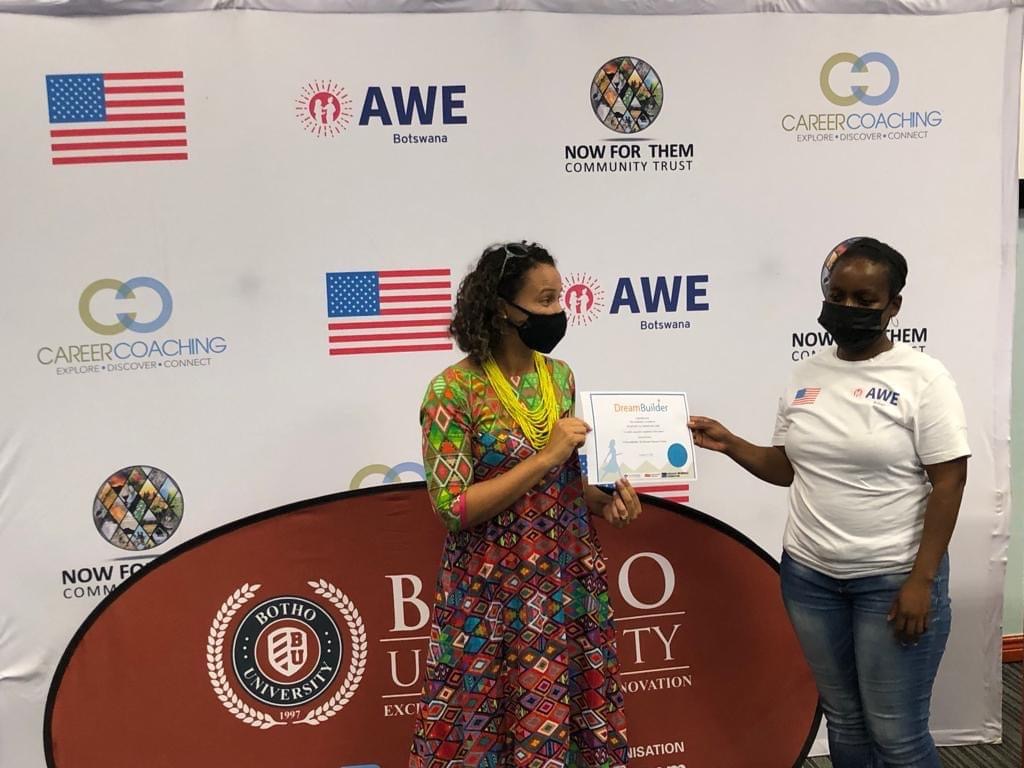As of January 25, 2022, the U.S. government has provided 224 million Pula in assistance to mitigate the health and socioeconomic impacts of COVID-19 for the people of Botswana.
Of the $19.2 million in bilateral funding, $10.6 million is for support for infection prevention and control, which includes oxygen support; $1.7 million for the construction of COVID-19 isolation facilities to support pandemic mitigation efforts in remote and under-resourced communities across Botswana; $4 million supports vaccination programs (including $2 million to strengthen the supply chain); $500,000 is to develop an emergency supply chain playbook; $196,000 is address HIV-related COVID-19 issues; $50,000 is for PPE procurement, and $2.2 million from PEPFAR Botswana’s Country Operation Plan 2021 (COP21) funds to focus on mitigating COVID-19 impact on PEPFAR programs and beneficiaries and support program recovery from the impact of the coronavirus. Further, of the newest funding for infection prevention and control and vaccination program support, $800,000 will be to strengthen the COVID-19 data system.
In addition to our $19.2 million in bilateral support, the United States provided $2 billion to Gavi, the vaccine alliance, to respond to the pandemic worldwide through vaccine procurement and delivery via the COVAX facility. We plan to provide an additional $2 billion once other donor countries’ commitments are also realized.
On November 19, 2021, the U.S. government handed over 100,620 doses of the Pfizer COVID-19 vaccine to Botswana as part of the Biden-Harris Administration’s global efforts to fight the COVID-19 pandemic. This Pfizer vaccine donation is in addition to the 81,900 doses donated to Botswana in August 2021.
The U.S. Mission has been in close collaboration with counterparts at the Ministry of Health and Wellness (MoHW). Examples of our successful health partnership include:
- Supporting Infectious Disease Care Centers with triage stations, including tents and chairs, to decongest waiting rooms for HIV care appointments.
- Supporting the review and implementation of integrated disease surveillance and response guidelines. Assisting the MoHW to strengthen surveillance of Influenza like illnesses and severe acute respiratory infections in line with WHO guidelines. Assisting MOHW with its monitoring and evaluation plan for COVID-19 vaccine distribution.
- Publishing COVID-19 prevention and management materials for clinics and public spaces. Developing content for the national COVID-19 communications campaign, and hosting webinars for healthcare workers on COVID mitigation measures and monitoring.
- Supporting the establishment and operationalization of the Botswana Public Health Institute (BPHI) which will strengthen the public health system and provide safe, comprehensive, and high-quality public health services and coordination management of future public health emergencies.
- Assisting the National Public Health Laboratory to manage national COVID testing, develop an outbreak surveillance and response system, and develop laboratory quality management systems. Providing technical support to other public health laboratories.
- Establishing a Field Epidemiology Laboratory Training Program to build a corps of in-country “disease detectives” to catch and control disease outbreaks like COVID-19.
- Supporting the MoHW’s COVID response, especially at the district level, by providing technical assistance to District Health Management Teams (DHMT) with contact tracing, surveillance, risk communication, and strengthening border posts.
- Supporting Central Medical Stores to prepare the country’s supply chain system for the demands of the vaccine roll out, including receipt of vaccines, distribution to the vaccination sites, and administration of vaccines. This includes optimizing warehousing and distribution of vaccines from the central level to vaccination centers, procurement of supplies to ensure integrity of the cold chain, and training to strengthen vaccination monitoring.
- Supported development of an emergency supply chain playbook to bolster the efforts of Central Medical Stores to ensure the people of Botswana can access life-saving medication during the COVID-19 and future pandemics.
- Strengthening Botswana Medicines Regulatory Authority’s ability to surveille the safety of COVID vaccines, including training of DHMT staff to monitor Adverse Events Following Immunization.
- Supporting DHMT infection prevention and control (IPC) efforts through mass media and social media messaging, and technical assistance for isolation and quarantine policies, including the National Home Isolation Strategy. At the national level we helped develop and cost the strategy. At the district level we worked with DHMTs to roll out the strategy through provision of supplies and HR support.
- Supporting the Government of Botswana’s (GoB) vaccine roll out efforts, including support for the national “Arm Ready” campaign, risk communications at the community level, community mobilization efforts, and strengthening clinics’ vaccine administration capacities through provision of HR for vaccination screening and administration.
- Supporting the MoHW’s drive-through clinics in Gaborone and Francistown. Support included providing vaccinators, data clerks, community health assistants, drivers, vaccine carriers, gazebos, and vehicles.
- Developing radio messages and other risk communication tools to ensure rural and urban communities are informed of the risks and prevention measures for COVID-19. Our Let’s Talk campaign, featured on social media and three different radio stations, incorporated COVID-19 prevention, and awareness themes.
- Supporting Botswana Gender-Based Violence Prevention and Support Center to provide emergency services in Francistown to address the increase in gender-based violence.
- Engaging our network of U.S. universities, NGOs, and businesses to support Botswana’s COVID-19 efforts.
- Funding a university partnership between Rutgers University, the University of Botswana, and the Ministry of Health to create a Clinical Telehealth Program for distance learning, tele-mentoring, and telemedicine in Botswana.
- Funding an awareness campaign to mitigate the impact of COVID-19 in high-risk communities. The campaign trained youth to sew face masks and work with local artists to paint murals with COVID-19 public health messaging.
- Providing 50 tablets to students at the Tsabong Secondary School to accommodate e-learning during the pandemic.
- Providing a public workshop on seeking employment and pursing entrepreneurship during the COVID-19 pandemic.










